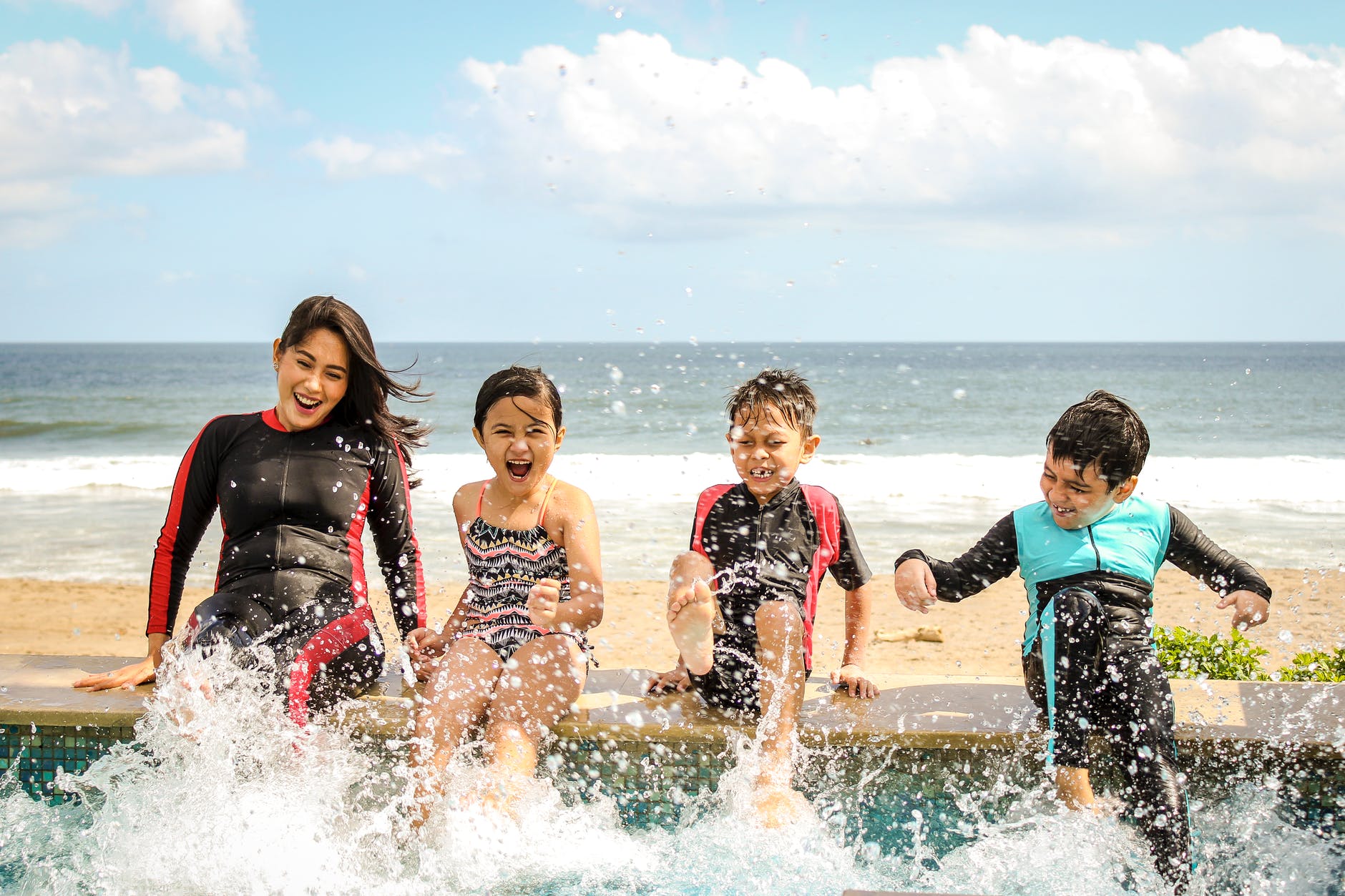Multicultural Community Education & Engagement Support
What does the data say?

22%
of overseas-born resident drownings occurred at the beach
Australia Water Safety Strategy 2030

48%
of coastal drownings were of people born overseas
2020 SLSNSW Coastal Safety Report

41%
of overseas-born residents were classified as poor swimmers
Australian Water Safety Strategy 2030
Engaging & Educating our Multicultural Communities
Multicultural and Culutrally and Linguistically Diverse (CALD) communities are a high priority for SLSNSW when it comes to educating and engaging them in key beach safety messages. We know that our multicultural communities and particularly new migrants and refugees face a number of barriers when it comes to safely engaging with the beach. At SLSNSW we have been involved in a number of multicultural community water safety committees and have formed our own Multicultural Reference and Advisory Group (RAG) to support the development of new multicultural resources and programs to ensure that they are meaningful and relevant to our unique multicultural communities.
Some interesting insights from our multicultural & CALD communities...
- I thought "Swim Between the Flags" meant that you can only go between the flags if you can swim, otherwise you must go somewhere else.
- I am a refugee to this country, fleeing from war, I feel uncomfortable and worried approaching people in a uniform.
- I worry about being fined or going to jail if I do something wrong, so I prefer to not ask for help.
- I am not sure what I would do if I saw a shark sign on the beach as I do not know what a shark is... Is it like a dolphin?
There are many things we need to consider when engaging and educating multicultural communities...

CULTURE
Culture is important. Learning to acknowledge and understand other cultures is vital to connecting with our communities. Having an awareness of our own culture additionally helps us to ensure we don't project our values onto others and supports greater understanding and inclusion.

LANGUAGE
There are many languages and many ways to communicate, this includes both verbal and non-verbal communication. Language is strongly connected to culture and experience and when we communicate with others who may not speak our language it is important to remember that it is not just what we say but how we say it.

GENDER-ROLES
Gender roles play a significant part of many cultures and each culture places a different emphasis on the importance of having gender specific roles. While we may not always know how someone percieves gender roles, it is always vital to be aware of the impact that this may play on a person's ability to seek assistance and communicate with others.

TRAUMA
Trauma related experiences, such as war and natural disasters, can have a severe impact on a person's ability to experience the world around them in a "normal" way. Individuals who have experienced trauma may be less likely to seek assistance and follow safety messages.

STEREOTYPES
It is easy to stereotype individuals. While we may not be able to avoid this completely, it is important to be aware of the ways in which we each may stereotype specific individuals, whether that be our belief on how an individual might act or react given their appearance or where they have come from. The antidote to stereotyping is awareness and making an effort to learn about other people from other cultures and walks of life.

RELIGION
Religion is an important aspect of life to many people. Having a respect and awareness of religions can help us to better connect with others and provide for a more inclusive way to reach out to and support our communities.
We are ready to work with you and support you with cultural training, networks, promotion, resources and subsidies. We have many communities looking for opportunities to learn at their local beach. Complete the form and we will be in touch with you shortly.

Find multilingual resources to use below
Multilingual Beach Safety Fact Sheets
Our beach safety fact sheets have been created for our diverse multilingual communities with the support of our Multicultural Advisory group and with the help of the communities they are created for.
Multilingual Beach Safety Videos
These videos have been filmed with the help of our amazing Surf Life Saving Lifesavers and members. These videos focus on key beach safety messaging and are subtitled in English.
Multilingual Beach Safety Quizzes
These quizzes have been developed by SLSNSW to support the learning of our in language content. The quizzes are a fun and informative way to learn and consolidate knowledge and are available in multiple languages.
Multilingual Rock Fishing Safety Infographic
Crafted by SLSNSW this infographic provides a visually illustrative and simple way to promote key rock fishing safety messages and activities.
Multilingual Rock Fishing Safety Videos
These videos have been filmed with the help of our amazing Surf Life Saving Lifesavers and members. These videos focus on key rock fishing safety messaging and are subtitled in English.
Learn & Play in your Language
Welcome to our multilingual hub! Here you will learn in your own language about the beach, rip currents, lifesavers, rock fishing and most importantly how you and your family and friends can stay safe while enjoying our beautiful beaches.
Stories from our community
Do you have a story to tell that you would like to share? Have you had a scary, happy or life changing experience with the ocean or at a beach? No matter how big or small we would love to hear your story.
International Student Water Safety Videos
This video series was launched in December 2020 and is a Study NSW Partner Project collaboration with the NSW Police Force, Surf Lifesaving NSW, Royal Lifesaving NSW and Northern Beaches Council.
For further support on Multicultural & Multilingual resources please contact our Multicultural Education & Engagement Officer, Isam Al-Handola at ial-handola@surflifesaving.com.au or by calling 0429 614 873.
